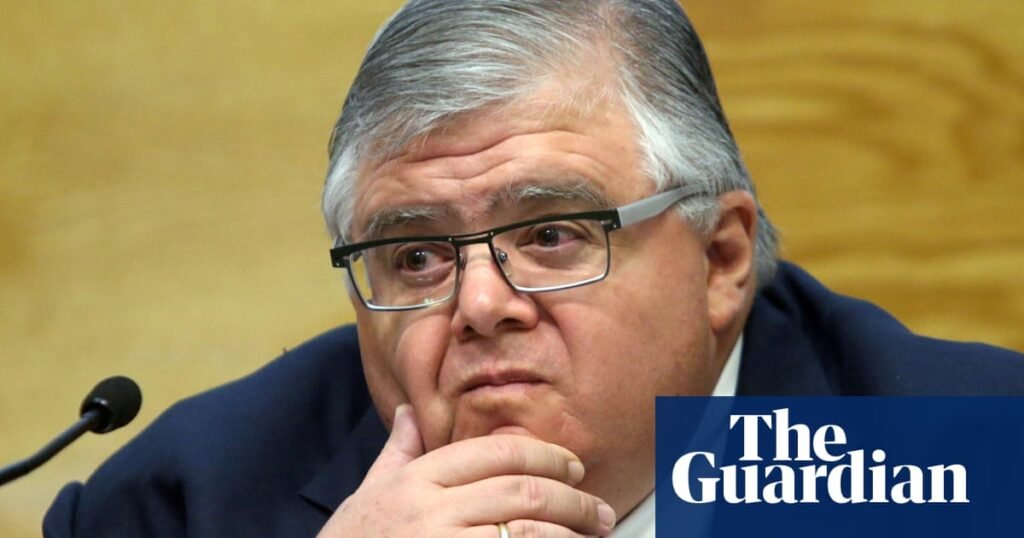Rising government debt levels could roil global financial markets, the head of an agency that advises central banks said on Sunday, ahead of crucial parliamentary elections in France.
Agustin Carstens, president of the Bank for International Settlements (BIS), said the global economy is on track to a “smooth landing” from the inflation crisis, but warned that policymakers, particularly politicians, need to be careful.
Global government debt is already at record levels, and every election carries risks, from the U.S. presidential election in November to recent polls in Mexico and South Africa, to next week’s elections in France and the United Kingdom.
President Emmanuel Macron’s decision to call early elections in France sent bank shares tumbling, alarmed bond markets and further raised concerns about the fiscal sustainability of the euro zone’s second-largest economy.
Opinion polls published before the first round of voting on Sunday suggested the far-right could win the biggest share of the vote amid a record turnout.
Carstens said the BIS was not blaming “one or two” governments and the message was clear.
“They are [governments] “Governments need to contain the growth of public debt and accept that interest rates may not return to their ultra-low pre-pandemic levels,” he said. “We need to get on solid footing.”
In its annual report, the BIS warned that interest rates are unlikely to return to ultra-low levels and that an ageing population, climate change, cost pressures from rebuilding defense capabilities, economic stimulus measures and a general rise in protectionism could destabilize sensitive markets.
“There will be surprise announcements, no advance warning,” Carstens told reporters, referring to the turmoil in British markets after then-Chancellor Liz Truss’s budget threatened to send some pension funds into default. “We really want to avoid that.”
All of France’s main parties have pledged new spending. Macron’s government has vowed to cut the budget deficit from 5.5 percent of gross domestic product last year to the European Union’s limit of 3 percent by 2027, but that target may be out of reach when a second round of voting ends on July 7.
Marine Le Pen’s Rally National (RN) wants to cut Value Added Tax (VAT) on energy if it forms government, a tax reform it says would cost €7bn (£5.9bn) for the rest of this year and €12bn for the whole year. It also says it will scrap a planned increase in the retirement age from 62 to 64 in 2023 and fund its spending plans with cuts to EU contributions.
The left-leaning New Popular Front coalition, currently in second place in the polls, has said its first measures would include a 10% pay increase for civil servants, free school lunches, supplies and transport, and a 10% increase in housing subsidies.
The turmoil has made it soaring the cost of the French government repaying its debt on international markets and pushed the risk premium, or spread, that holders of French bonds demand over German ones to the highest level since 2012.
After newsletter promotion
The CAC 40 index of France’s blue-chip banks is down 6% since Macron dissolved parliament, with French banks suffering the biggest declines. The three biggest banks, Société Générale, BNP Paribas and Credit Agricole, are down between 10% and 14% since Macron announced the dissolution.
French banks are heavily indebted and would be hit by a sharp rise in credit costs.
The upside for Carstens is that the central bank has done a good job of containing inflation, which hit its highest level in decades after the COVID-19 pandemic and Russia’s 2022 invasion of Ukraine, which infuriated commodity markets.
“I have to say that compared to last year, we are in a much better situation,” the former Mexican central bank governor said.
Carstens said central banks deserve credit for navigating a difficult path that could lead to a recessionary cycle, but added that they need to persevere, likening the fight against inflation to taking antibiotics to fight a disease.
He described an “extreme” scenario in which inflation spikes again, forcing central banks to raise interest rates further — but that’s not what the BIS is expecting.

